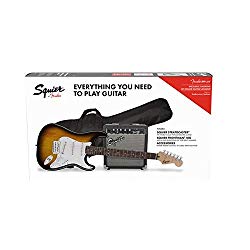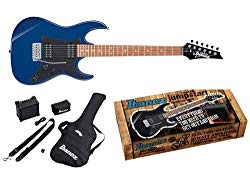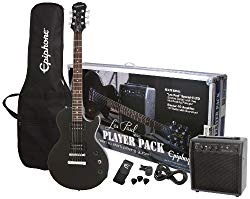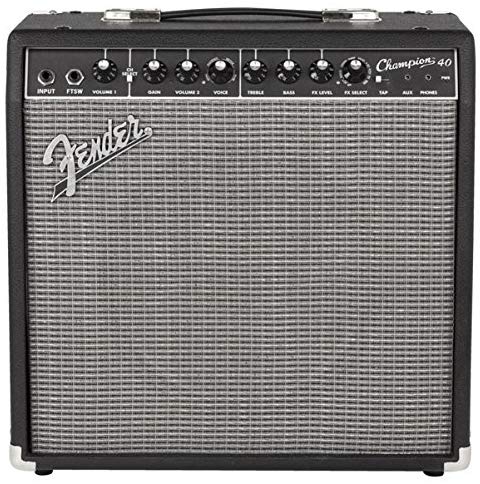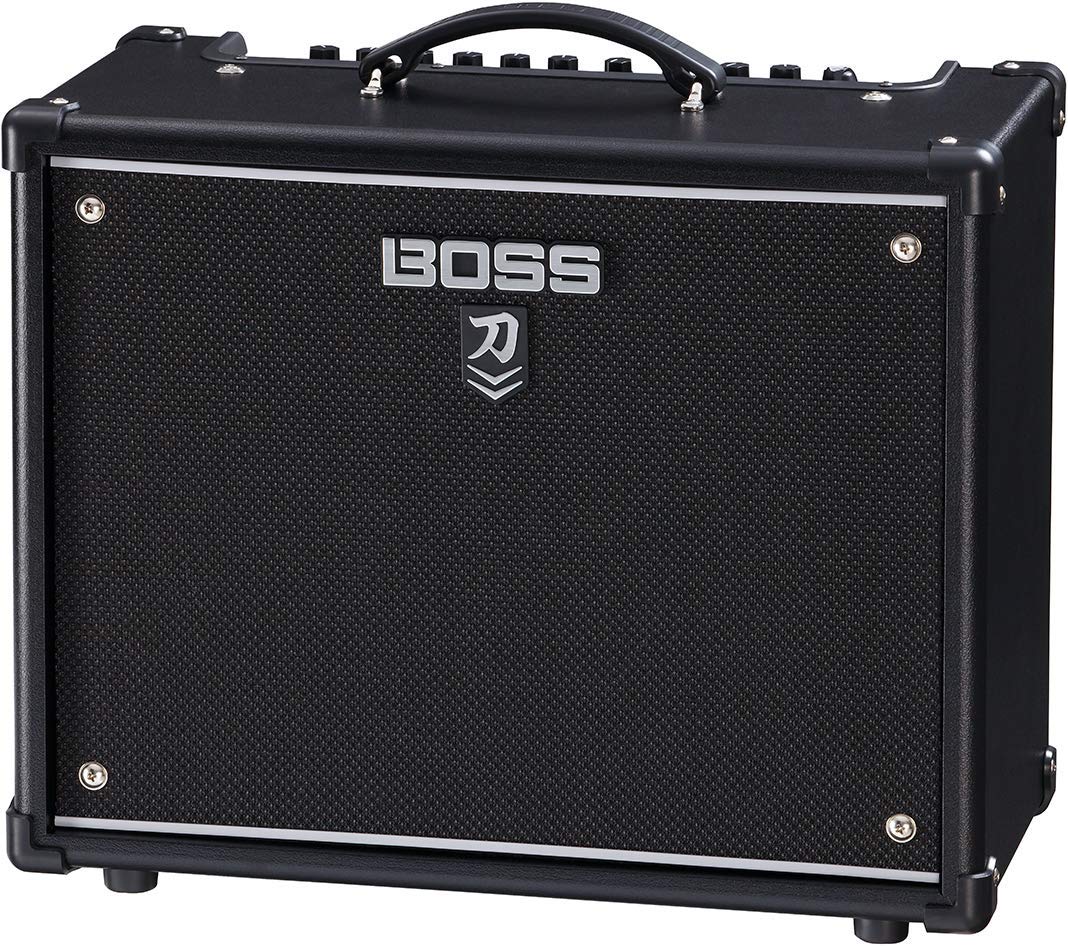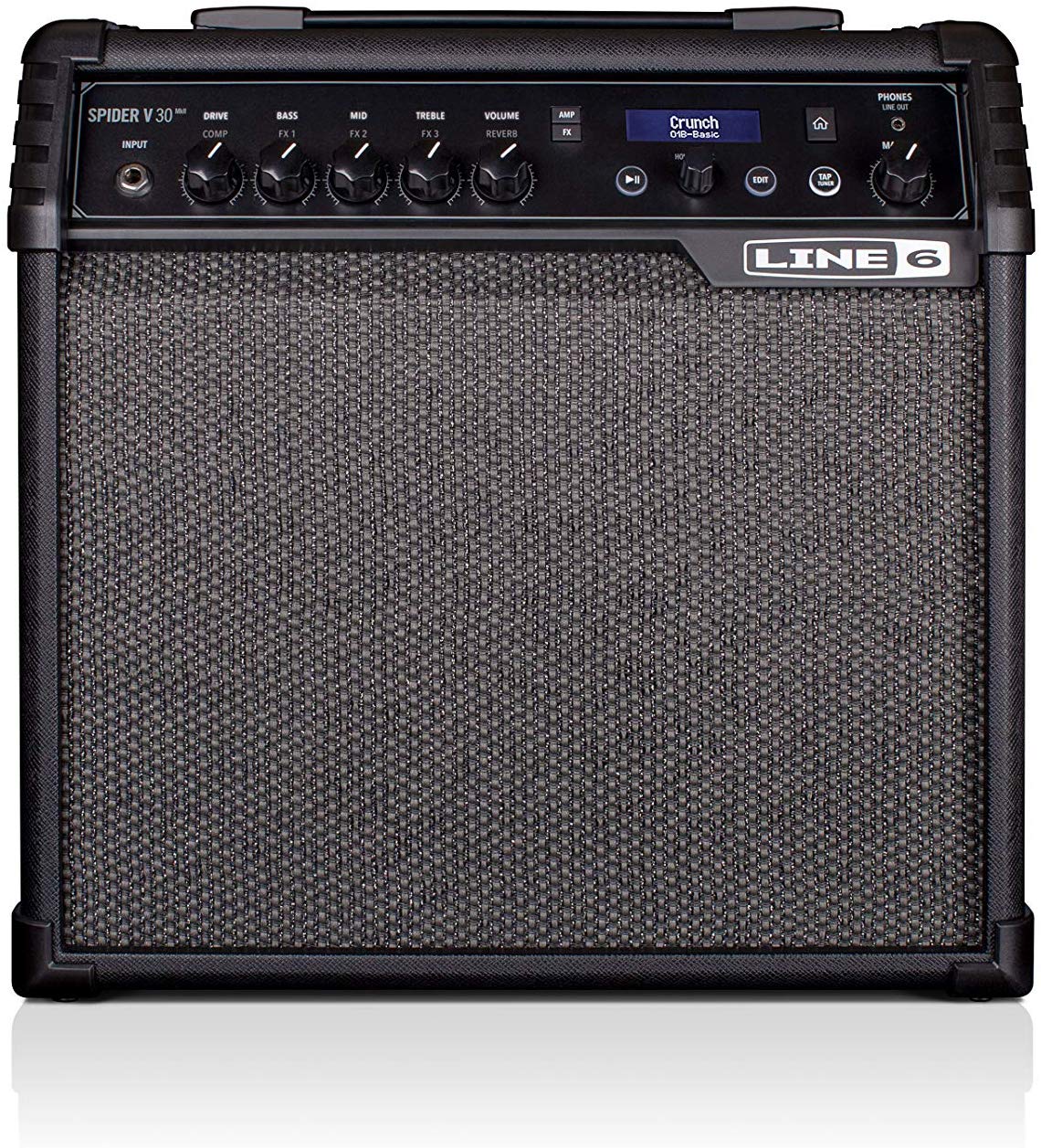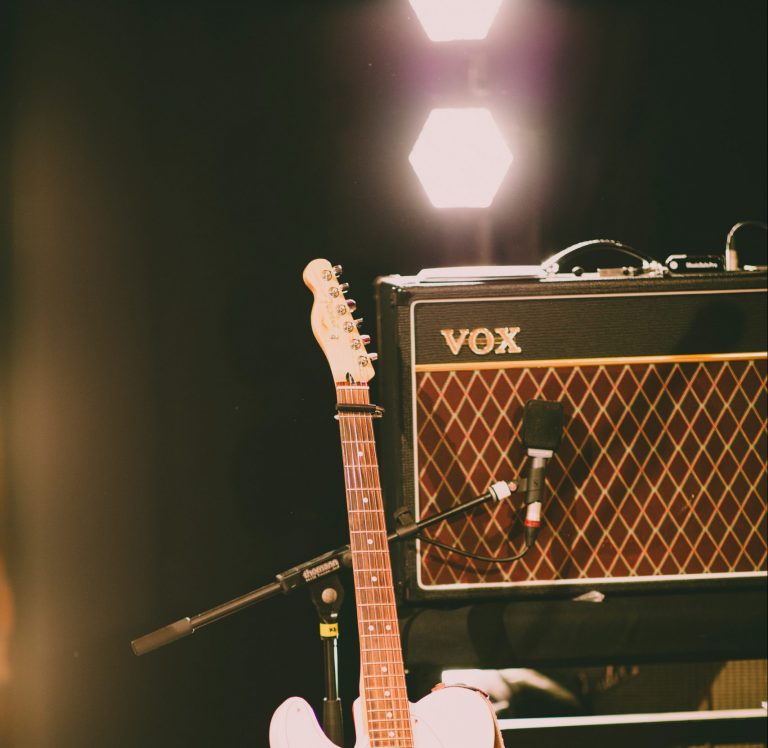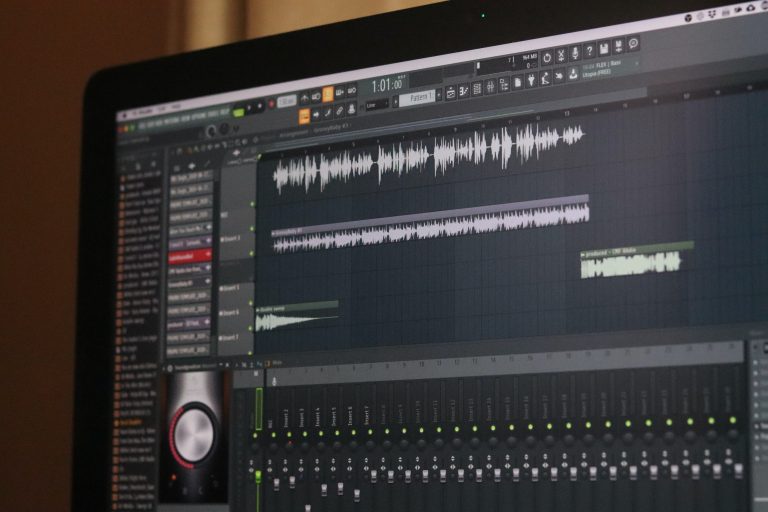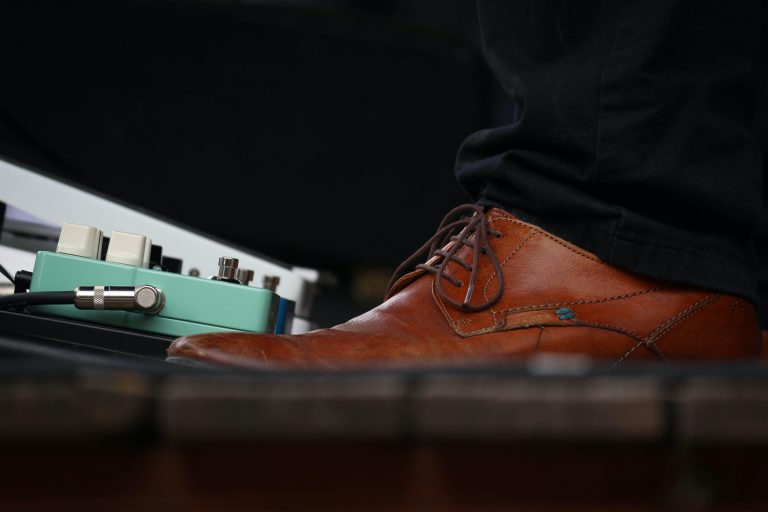Why You Shouldn’t Buy a Guitar Starter Pack
Guitar is one of the most exciting and most popular instruments out there, and many of us aspire to learn or eventually master it. If you or someone you love is just starting out playing, I sincerely hope this article helps you make an informed decision on your purchase! In this article, I’ll go over the pros and cons of buying an electric guitar starter pack, and why I think it’s not worth your money. At the end, I list what I believe to be some great starter alternatives that are a great buy and will last a new player much longer as he or she grows into the instrument. Let me know if you agree or disagree in a comment below if you like, I’d be happy to have a respectful discussion about it, because I think there’s value in both sides to this debate.
Congrats, You’re Finally Getting That Guitar!
Let’s set the stage. So you or someone you love is about to start on the wonderful musical journey of guitar. Congrats! Now that you’ve decided to make the investment, you realize: whoa. There are a TON of choices out there, some of which are VERY expensive. You quickly realize that becoming a musician turns out to be a pretty costly affair, and you and your wallet begin to worry about sinking a bunch of money into something you or the person you’re shopping for may not even end up sticking through.
But then, as if by some miracle in your search, you’ve discovered the existence of the guitar starter pack, and you think to yourself, “Awesome! I can get everything I need to get started, and it’s not even that much money!” Well, I’m here to share with you an old adage you might or might not like all that much: If it seems too good to be true, it probably is. Starter packs are almost never a good investment, and I’d like to share with you why.
The Pros
But before I get started, I will admit there are a few obvious benefits to the guitar starter pack, and I also want to remind you that ultimately this article is only my opinion. What you ultimately decide is up to you. In keeping with that sentiment, I wanted to share the pros to going the route of the starter pack in addition to the cons. First, and most obviously, there’s the cost. These packages tend to be focused on being affordable, so even though they might come with an instrument, an amplifier and cable, maybe a tuner, extra strings, and some other accessories, they generally hover around 150 to 250 USD. That’s a great way to lower the barrier to entry into playing guitar.
Alright, so with price in mind I’m going to go on a short tangent here. Let it be known ahead of time that anything you can get beneath that value mentioned above brings you into the dangerous territory of the ISO: The Instrument-Shaped Object. Again, if it looks too good to be true, it probably is. Especially if it costs a fraction of what the competition’s asking price is. There’s almost always a catch. The big thing with these ISO deals that you can find on Amazon or some other places is that the “instruments” (quotations intentional here) in question use such cheaply or specifically manufactured parts that it is often difficult or impossible to work on them when something inevitably goes wrong with them. And if you’re not crafty yourself and intend to pay someone else to do that work, odds are that expert’s time is worth more than the ISO, and you end up stuck buying what you probably should’ve bought anyway later, after losing money on the first thing you bought. Not a happy time for anyone.
Alright, enough said about that, but back to the benefits of the starter pack. The next and probably only other real notable benefit is convenience. All the things you need are, at least to some bare minimum, in the box. In a lot of cases you really don’t end up needing much else to get started. That convenience also takes some of the time out of the purchasing process.
The Cons
Okay so I know what you’re thinking. “So price and convenience are the big wins for guitar starter packs right? Why are you telling me not to buy them!?” And to that, my friend, the answer is simple: Music is not something you should shop for with just your wallet. Why? Because it’s not only a financial investment, it’s an investment of time, and if you’re doing it right, an investment of emotions. The time that you give to your instrument has a huge effect on the amount of value you get out of it. If that experience of picking up that new guitar doesn’t excite you, you’re not going to give it the time, and you won’t get to maximize your potential.
Even leaving ISOs aside, a lot of starter packs, as we’ve seen in the examples above, come from some recognizable names, even to the layman. Squier is made by Fender, and Epiphone by Gibson, and those Asia-produced spin-off brands even have some rightfully expensive instruments out there! So why not trust their entry-level? Well, you have to consider the materials and the time that goes into the gear’s production. The entry-level instruments and amps absolutely look the part to the untrained eye, especially in pictures online, but factors like the wood used (whether it’s even a solid piece or just composite), the quality of the electronics, and the quality control all have effects on that final ticket price. These instruments are certainly better than the ISO, being backed by reputable brands and can often be worked on and even upgraded, but some of them come with some downright dismal parts out of the box, from cheap hardware and electronics, to shoddy fretwork, poor intonation, and cheap strings to name a few. And that “time saved” we mentioned as a plus above can also be a bit of a detriment: not spending time learning about what you’re buying might also prevent you from knowing what a good guitar or a good amp really is. We’ll talk more about what makes a good guitar and a good amp in later posts to come. So there’s that, too.
Don’t Just Shop with Your Wallet
As it becomes clear to you through what I’m sharing here or by just playing on the guitars and amps yourself, you’ll do one of two things with this information: You’ll realize you need to spend some extra time and/or money fixing what wasn’t right out of the box, or you’ll be so discouraged by the instrument that you won’t continue playing it. Now I know you’re thinking. “Well, if I do quit, it doesn’t hurt my wallet as bad as if I spent $600-700 on nicer stuff.” I’m gonna need you to stop that right now. If you plan to start out with a defeated attitude like that, I would definitely not recommend choosing to play guitar. I know that sounds harsh, but seriously, if you invest that extra bit of money, yes the value of the instrument and other gear you buy will depreciate as “used” after you purchase them, but a higher quality instrument (especially one kept in great condition), usually fetches a reasonable price on sites like eBay or my personal favorite spot online for used music gear: Reverb.com, so the actual loss you’ll end up with is much less. More on that in a second.
You will have a pretty hard time getting even a decent price back for those starter instruments and amps if you try to sell them, so ultimately the amount of money you stand to lose is actually not that far apart. Because the stuff is lower quality, and it really only caters to beginners, the amount of people you can reach in trying to let these starter kit parts go is much smaller.
Let’s do a comparison to see what the real loss is in both cases, just to give you some concrete examples. Let’s start with a slightly more expensive, but more quality option. At the time of this writing, a great starter guitar I would recommend, the Squier Standard Stratocaster, sells for 299.99 USD new, and on Reverb that same guitar in great condition sells for just $50 less than the new price. Similarly, a great solid state starter amp, the Fender Champion 40, retails for 199.99 USD new, and sells in great condition on Reverb for about $159.99, or a $40 difference. And in comparison, let’s look at a Squier starter pack, valued at $219.99 for the whole thing. At the time of my writing this, I can’t find the model guitar that comes in this pack anywhere (and I suspect that’s probably by design). Those amps that come in the kit (they sell separately with the Fender badge, and not the Squier one), go for about $50 on Reverb, and a used bundle of everything in good shape goes for about $169.99. So all in all, the separate, higher quality route nets you a loss of about $90 (not including cables and accessories, which would likely be returnable and fully refundable if you take advantage of the generous return policies of most dealers), while the starter pack route is at worst a loss of about $50. A $40 difference in potential loss does not, in my humble opinion, warrant such a drop in quality between all that gear.
Time for tangent number two. In that little exercise, I hope you noticed something else about shopping for gear: Buying new isn’t the only option out there! If you don’t have to absolutely have things new in the box, plenty of folks shop used, and Reverb.com is a great way to buy used with confidence. It’s also a great marketplace to list gear you want to let go, too!
Jordan’s Recommendations
Phew! Well that was a lot to read, but I’m so glad you made it through this far. Although the guitar starter pack looks like a financially cheaper option on the surface, I always recommend to new players to just save up an extra $150-$200 to spend on higher quality stuff that you can grow with a little. As promised, here is a list of 3 great entry-level guitars, and 3 entry-level amps to get you started on your electric guitar journey that won’t set you up for failure.
Guitars

Squier Standard Stratocaster Flame Maple Top
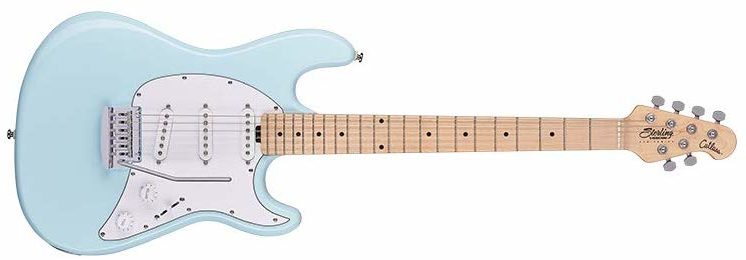
Sterling by Music Man Cutlass SSS

Ibanez GRGA Electric Guitar Transparent Blue Burst
Amps
Final Thoughts
At the end of the day, what you do with your money is up to you, but I hope this has helped you understand a little better that playing music is an investment and not just a purchase, and most important, helps you to make the most informed decision in getting started. In general, better quality means you’ll just plain have more fun playing, as the instruments you get start to get out of the way more so you can most effectively express yourself.
Thanks so much for reading!


